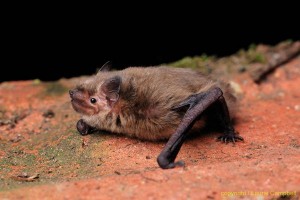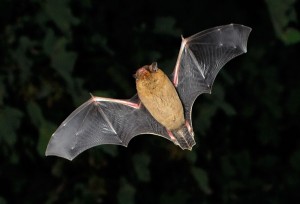 In June, female bats usually give birth to a single pup, which they feed on their milk. Young bats are very small (less than an inch) with thin, slightly grey fur. Adult bats will catch thousands of insects each in a night.
In June, female bats usually give birth to a single pup, which they feed on their milk. Young bats are very small (less than an inch) with thin, slightly grey fur. Adult bats will catch thousands of insects each in a night.
Bats play an important role in many environments around the world. In the UK, some bats are ‘indicator species’, because changes to these bat populations can indicate changes in aspects of biodiversity. Bats might suffer when there are problems with insect populations (because our bats feed on insects) or when habitats are destroyed or poorly managed (for example, some bats only live in large woodlands).
While some people think bats are pests, some bats are actually pest controllers eating thousands of insects every night. UK bats won’t bite you or suck your blood – but they will help clear the air of bloodsucking insects!
All bats in the UK are insectivores – they only eat insects. Insect-eating bats are great for keeping bugs away from crops, as well as the places where the bats roost.
 Sadly, many bat species around the world are vulnerable or endangered due to factors ranging from loss and fragmentation of habitat, diminished food supply, destruction of roosts, disease and hunting or killing of bats.
Sadly, many bat species around the world are vulnerable or endangered due to factors ranging from loss and fragmentation of habitat, diminished food supply, destruction of roosts, disease and hunting or killing of bats.
In the UK, bat populations have declined considerably over the last century. Bats are still under threat from building and development work that affects roosts, loss of habitat, the severing of commuting routes by roads and threats in the home including cat attacks, flypaper and some chemical treatments of building materials. Other potential threats can include wind turbines and lighting if they are sited on key bat habitat on near roosts.
Information taken from BCT website
To read all about the work of the Bat Conservation Trust (BCT) click here





